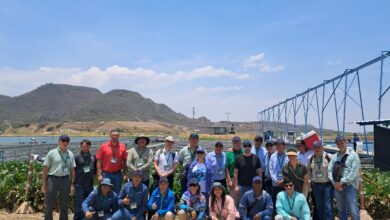
Collaborating for Shared Success
Strong relationships and collaboration built on trust lie at the heart of USSEC efforts. Our team members work alongside customers, processors, shippers and many others to ensure that high-quality, sustainable U.S. Soy contributes to their successful business outcomes.
Together, we solve real challenges along every link in the global soybean supply chain.
Growing Tempe Manufacturer Relies on U.S. Soy
Tempe has been a staple in Indonesian diets for more than 400 years. Roughly 112,000 micro, small and medium-sized businesses throughout the country employ about 240,000 people to produce it.1 And, it has been nominated for UNESCO recognition as a cultural heritage food.
Tempe Azaki, a frozen fresh tempe producer, has grown from a microenterprise into a successful industrial-scale food manufacturer. The team took advantage of USSEC training as the company was growing. The knowledge gained influenced their choice to use 100% high-quality U.S. Soy in all their factories.
To support global brand growth, product packaging displays the Sustainable U.S. Soy logo to appeal to customers in export markets like Europe.
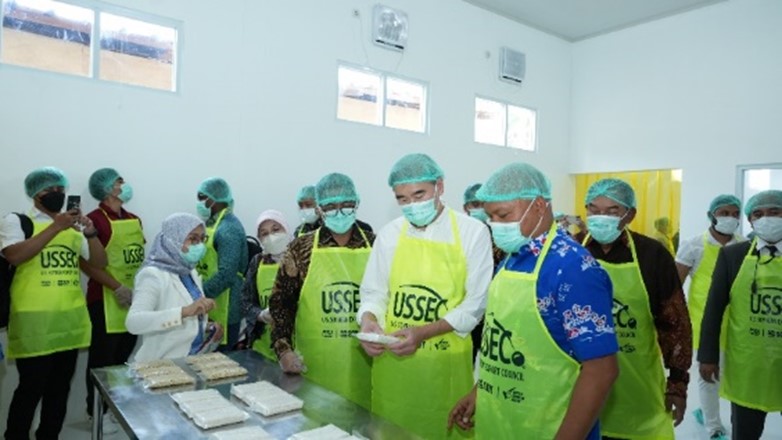
Quality Worth the Premium
Is U.S. Soy worth the premium price? A major soybean crusher in Türkiye determined that it is, given customer needs for quality soybean meal.
During a one-on-one visit with an aquaculture company, a USSEC technical expert learned the company had rejected two soybean meal shipments of a different origin. The soybean meal had low potassium hydroxide (KOH) solubility, a key quality indicator. The customer cited knowledge gained from USSEC quality seminars and resources to justify the decision.
At a USSEC risk management seminar in the following weeks, crushing company representatives reported subsequently purchasing a vessel of U.S. Soy, which cost $25 to $30 more per metric ton than soybeans of other origins. The crusher’s import manager explained that the decision was made due to higher quality of U.S. Soy, including KOH, versus processing soybeans from another origin.
For both the crusher and the aquaculture producer, high-quality U.S. Soy contributes directly to successful business operations.
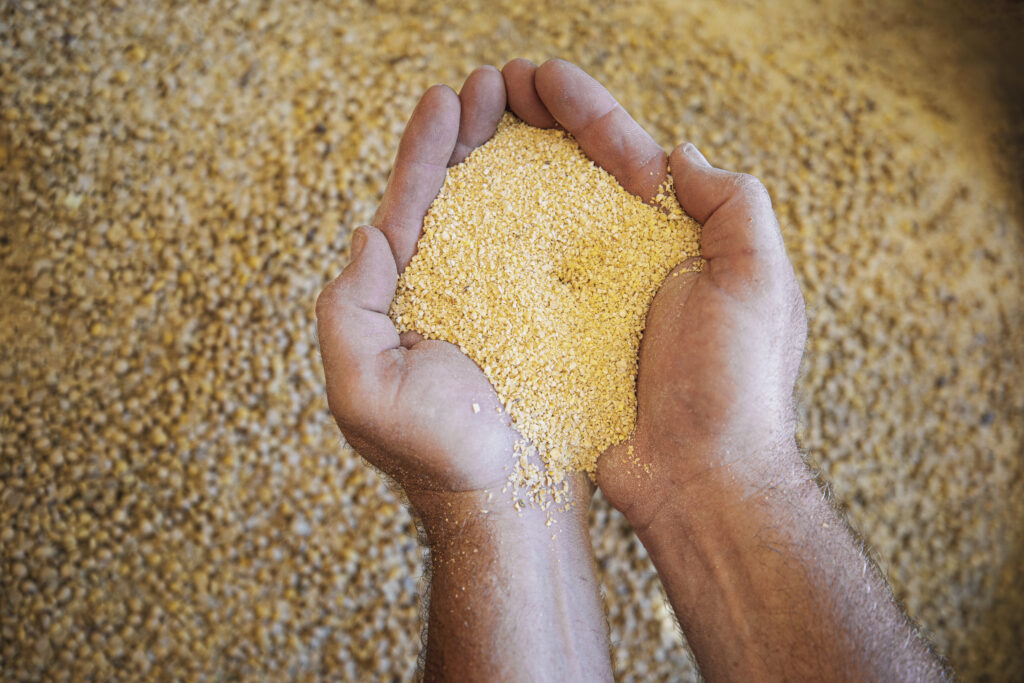
Industry Improvements
Soy Excellence Center Drives Feed Mill Efficiency

Based on USSEC’s Soy Excellence Center guidance, Md. Shahinoor Rahman, manager of plant operations for a Bangla-UK Agro Products Ltd. feed mill in Bangladesh, says his plant increased production volume by 5 to 6% and improved feed conversion ratios from 1.5 to 1.3. Using higher-quality soybean meal derived from U.S. Soy resulted in significant cost savings for both the feed mill and its poultry customers.
Sustainable U.S. Soy Boosts Sales

“Since introducing the Sustainable U.S. Soy label to Sajo Daerim’s soy paste products, sales increased 23% in less than one year.”
– Sang Hoon Kim, CEO, Sajo Daerim Corporation, South Korea
Charting New Waters in Aquaculture
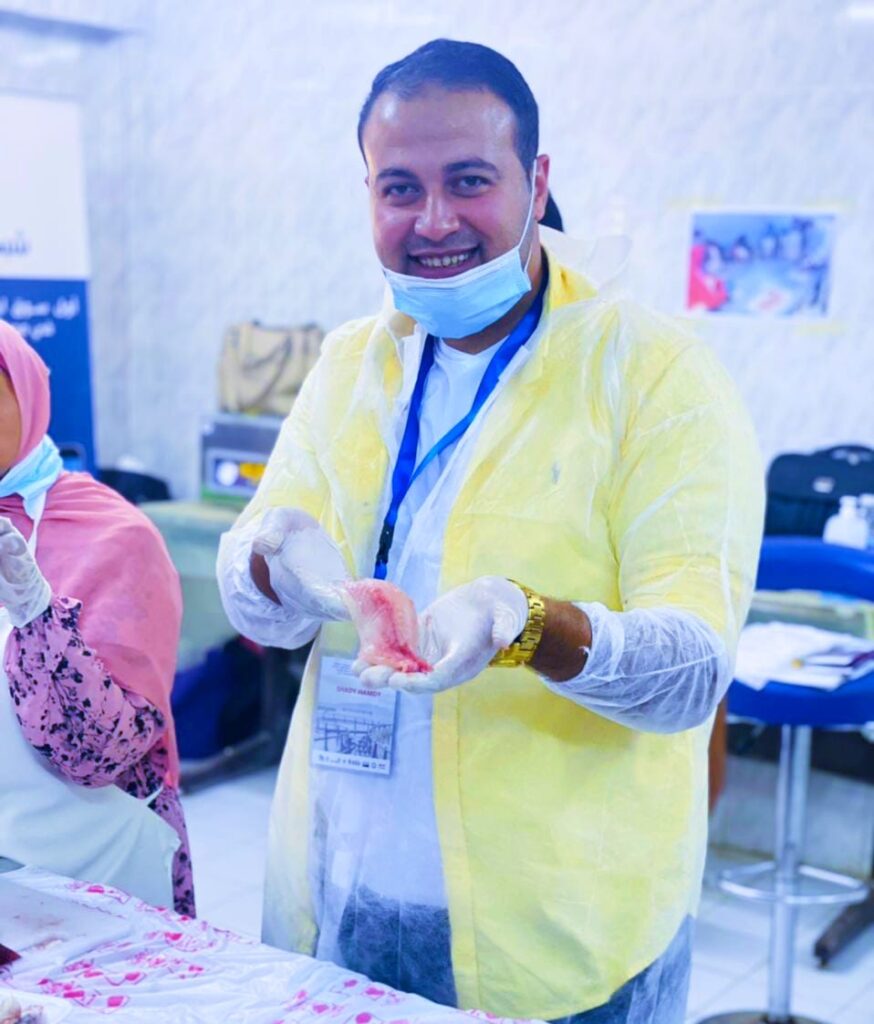
Shady Hamdy Mohamed Al-Deriny, the co-founder of an aquaculture hatchery in Egypt, credits Soy Excellence Center courses with helping bridge the gap between theory and practice and sparking his innovation of the Smart Feed Estimation Device. The device calculates feed to prevent waste and pollution while optimizing fish growth.

Shrimp Industry Innovation in China
Chongqing Tongnan Yiwei Aquaculture Co. Ltd, specializes in shrimp production. Their bio-flock shrimp culture technology system, promoted by USSEC, uses probiotics to enhance shrimp health and provides supplemental natural foods while minimizing discharge waste in inland systems.
Training and technical support from USSEC helped Chongqing Yiwei implement this environmentally friendly approach and achieve Global Seafood Alliance Best Aquaculture Practice certification. Shrimp receive feed containing about 25% U.S. Soy products. The approach has drawn attention from a key online food retail platform and others.
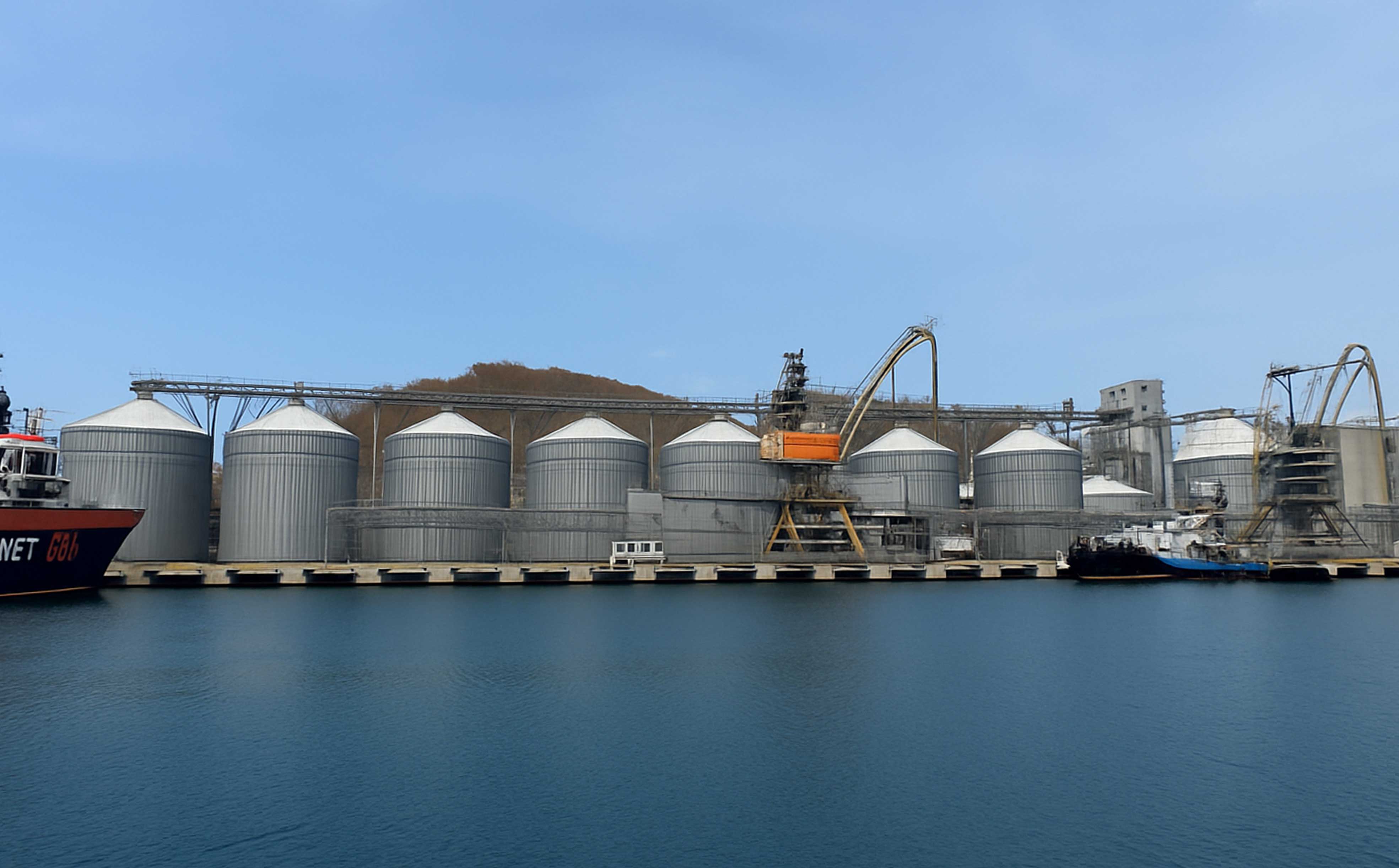
Colombia Capitalizes on Increasing U.S. Crush Capacity
U.S. soybean crushing capacity is growing to meet demand for low-carbon fuel feedstocks, and Colombia is taking advantage of that by importing more U.S. soybean meal. USSEC experts work with companies to help them understand that feeding high-quality U.S. soybean meal in the poultry, pork and aquaculture sectors helps keep protein production more competitive and successful.

Showcasing Sustainable Pet Food in El Salvador
Grupo MOR, an animal feed company based in El Salvador, wanted to demonstrate its commitment to producing sustainable products. USSEC helped the company incorporate the Sustainable U.S. Soy logo into their product lineup.
That step led to the opportunity for Grupo MOR to participate in a pet food fair. The event provided a platform to showcase pet food products that prominently featured the newly added logo. The company also highlighted the Sustainable U.S. Soy logo and commitment on their social channels.
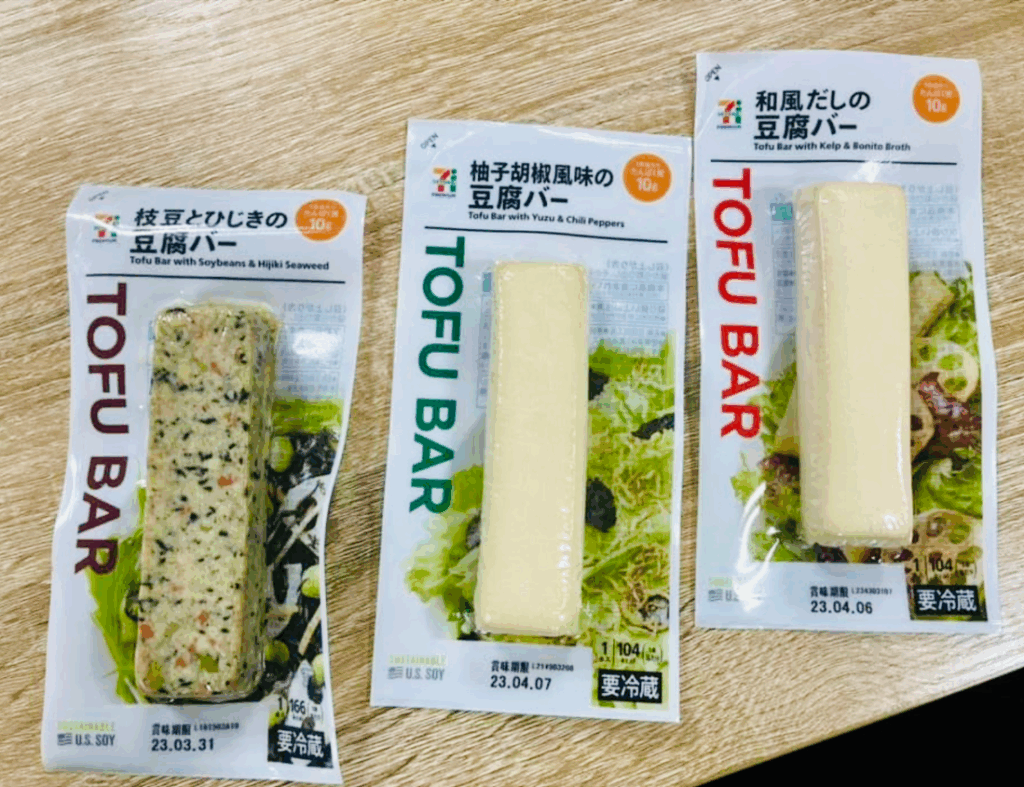
Convenient, Sustainable Soy Snacks
Japanese consumers love soy foods, but they demand sustainable products, even in convenient, ready-to-eat snacks. Since 2023, 7i convenience stores, the Japanese equivalent of 7-Eleven, have sold flavored tofu bars carrying the Sustainable U.S. Soy logo. Parent company Seven & I Group chose to source U.S. soybeans because U.S. Soy delivers quality and sustainability certification. Using the Sustainable U.S. Soy exemplifies the company’s commitment to sustainability.

Vietnam Airlines Soars with U.S. Soy
Vietnam Airlines demonstrates its commitment to sustainability with its in-flight menus. Soy foods featuring U.S. Soy-based ingredients and the Sustainable U.S. Soy label have become an essential part of their special menus.
To commemorate the United Nations’ International Day for the Preservation of the Ozone Layer, passengers enjoyed a variety of meal options prepared with U.S. Soy. Such special menus, along with standard in-flight food options, highlight the versatility of U.S. Soy in delivering nutritious, eco-friendly cuisine – even at 35,000 feet.
Learn more about how USSEC works closely with others through the global soy industry to solve challenges, deliver sustainable U.S. Soy products and support successful business ventures.
- Indonesia National Statistical Agency: Economic Census 2016

